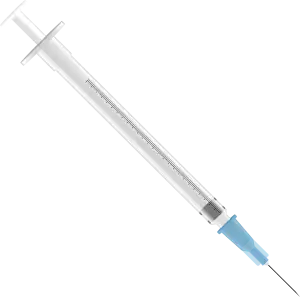Unlocking the Benefits: Exploring the Caloric Deficit Phenomenon for Optimal Health

- Understanding the Concept of Caloric Deficit
- Benefits of Caloric Deficit for Weight Loss
- How to Calculate and Maintain a Caloric Deficit
- Tips for Achieving a Caloric Deficit Safely
- Potential Risks and Side Effects of Caloric Deficit
- Incorporating Exercise and Balanced Nutrition with Caloric Deficit
- Monitoring Progress and Adjusting Caloric Deficit as Needed
In the quest for optimal health and weight management, one term that often comes up is "caloric deficit." But what exactly does it mean? Simply put, a caloric deficit occurs when you consume fewer calories than your body needs to maintain its current weight. This imbalance between energy intake and expenditure forces your body to tap into its stored fat reserves for fuel. Understanding the concept of caloric deficit is crucial for anyone looking to shed excess pounds and improve their overall well-being. In this article, we will delve deeper into the benefits, calculations, safety measures, and strategies for incorporating a caloric deficit into your daily routine. So let's unlock the potential of this phenomenon and embark on a journey towards optimal health!
Understanding the Concept of Caloric Deficit
To comprehend the concept of a caloric deficit, it is essential to grasp the basic principle of energy balance. Our bodies require a certain amount of energy, measured in calories, to function properly. This energy comes from the food we consume.
A caloric deficit occurs when we consume fewer calories than our body needs to maintain its current weight. In other words, we are creating an energy imbalance by consuming less energy than we expend.
When this happens, our body turns to stored fat as a source of fuel. By consistently maintaining a caloric deficit over time, we can effectively lose weight and reduce body fat.
It's important to note that a caloric deficit should be achieved in a healthy and sustainable manner. Severely restricting calories or engaging in crash diets can have negative effects on our overall health and well-being.
By understanding the concept of caloric deficit and how it affects our bodies, we can make informed decisions about our dietary choices and work towards achieving optimal health and weight management.
Benefits of Caloric Deficit for Weight Loss
One of the key benefits of a caloric deficit is its ability to promote weight loss. When you consume fewer calories than your body needs, it is forced to tap into stored fat for energy. This leads to a gradual and sustainable reduction in body weight.
By consistently maintaining a caloric deficit, you can create an energy imbalance that encourages your body to burn fat as fuel. This can result in significant weight loss over time, helping you achieve your desired goals.
In addition to shedding excess pounds, a caloric deficit can also improve overall body composition. As your body burns fat for energy, it helps preserve lean muscle mass, giving you a more toned and defined physique.
Furthermore, losing weight through a caloric deficit has been linked to numerous health benefits. It can reduce the risk of chronic conditions such as heart disease, diabetes, and certain types of cancer. Additionally, it can improve insulin sensitivity and lower blood pressure levels.
However, it's important to note that weight loss should be approached in a healthy and balanced manner. Extreme or rapid caloric deficits can have negative effects on metabolism and overall well-being. It's crucial to consult with a healthcare professional or registered dietitian before embarking on any significant dietary changes.
How to Calculate and Maintain a Caloric Deficit
To calculate and maintain a caloric deficit, you need to determine your daily calorie needs and then consume fewer calories than that. Start by calculating your basal metabolic rate (BMR), which is the number of calories your body needs to function at rest. Next, consider your activity level and multiply your BMR by an activity factor. This will give you an estimate of your total daily energy expenditure (TDEE). To create a caloric deficit, aim to consume around 500-1000 fewer calories per day than your TDEE. However, it's important not to go too low as extreme deficits can be harmful. Keep track of your food intake using a food diary or mobile app, and make sure to prioritize nutrient-dense foods while reducing portion sizes and cutting back on high-calorie foods. Regularly monitor your progress and adjust your caloric deficit as needed for sustainable weight loss.
Tips for Achieving a Caloric Deficit Safely
Achieving a caloric deficit safely is crucial for maintaining optimal health while losing weight. Here are some tips to help you achieve this:
1. Gradual Reduction: Instead of drastically cutting your calorie intake, aim for a gradual reduction of 500-1000 calories per day. This will allow your body to adjust and prevent any sudden metabolic changes.
2. Balanced Diet: Focus on consuming nutrient-dense foods that provide essential vitamins, minerals, and fiber. Include plenty of fruits, vegetables, lean proteins, whole grains, and healthy fats in your meals.
3. Portion Control: Be mindful of portion sizes to avoid overeating. Use smaller plates and bowls to visually trick yourself into thinking you're eating more than you actually are.
4. Mindful Eating: Slow down and savor each bite during meals. Pay attention to hunger cues and stop eating when you feel satisfied rather than overly full.
5. Stay Hydrated: Drink plenty of water throughout the day as it can help curb cravings and keep you feeling fuller for longer.
6. Avoid Liquid Calories: Limit or avoid sugary drinks such as soda, juices, and energy drinks as they can quickly add up in calories without providing much nutritional value.
7. Plan Ahead: Plan your meals and snacks in advance to ensure you have healthy options readily available. This will help prevent impulsive food choices that may derail your caloric deficit goals.
Remember, it's important to consult with a healthcare professional or registered dietitian before making any significant changes to your diet or exercise routine to ensure it aligns with your individual needs and goals.
Potential Risks and Side Effects of Caloric Deficit
While caloric deficit can be an effective strategy for weight loss, it is important to be aware of the potential risks and side effects that may arise. Severely restricting calories for an extended period can lead to nutrient deficiencies, muscle loss, and a weakened immune system. It may also result in decreased energy levels, mood swings, and difficulty concentrating. Furthermore, extreme caloric deficit can slow down metabolism, making it harder to lose weight in the long term. It is crucial to strike a balance between creating a calorie deficit and ensuring proper nutrition to minimize these risks.
Incorporating Exercise and Balanced Nutrition with Caloric Deficit
While caloric deficit is a key factor in weight loss, it is equally important to focus on incorporating exercise and balanced nutrition into your routine. Exercise not only helps burn additional calories but also improves overall fitness and boosts metabolism.
Engaging in regular physical activity such as cardio exercises, strength training, or even simple activities like walking or cycling can help accelerate weight loss. Aim for at least 150 minutes of moderate-intensity exercise per week to reap maximum benefits.
Alongside exercise, it is crucial to maintain a well-balanced diet that provides essential nutrients while keeping calorie intake in check. Opt for nutrient-dense foods like fruits, vegetables, lean proteins, whole grains, and healthy fats. These will provide the necessary energy for workouts and support overall health.
Additionally, be mindful of portion sizes and avoid excessive snacking or indulging in unhealthy foods. Consider consulting a registered dietitian who can create a personalized meal plan tailored to your specific needs and goals.
Remember that the goal is not just to lose weight but also to improve overall health and well-being. Combining exercise with a caloric deficit ensures that you are burning fat while preserving muscle mass. This will result in a more toned physique and better long-term results.
By incorporating exercise and balanced nutrition into your caloric deficit journey, you will not only achieve weight loss but also enhance your fitness level, boost metabolism, improve cardiovascular health, and increase energy levels.
Monitoring Progress and Adjusting Caloric Deficit as Needed
Once you have established a caloric deficit, it is important to monitor your progress regularly. This can be done by tracking your food intake and exercise habits, as well as measuring your weight and body measurements.
Keep a food diary or use a mobile app to record everything you eat and drink. This will help you stay accountable and make adjustments if necessary. Additionally, weigh yourself regularly, preferably once a week, to track your weight loss progress.
If you find that your weight loss has stalled or slowed down significantly, it may be time to adjust your caloric deficit. Remember that as you lose weight, your body's energy needs will change. Recalculate your daily calorie intake based on your current weight and activity level.
However, it is important not to drastically reduce calories or increase exercise too quickly in an attempt to speed up weight loss. This can lead to nutrient deficiencies and other health issues. Instead, make small adjustments of around 100-200 calories per day if needed.
Remember that the goal is sustainable weight loss and overall health improvement. It may take time to find the right balance of calories for your individual needs. Be patient with yourself and listen to your body's signals.
By monitoring progress and adjusting the caloric deficit as needed, you can ensure that you are on the right track towards achieving optimal health through sustainable weight loss.
In conclusion, embracing the concept of caloric deficit can lead to a healthier lifestyle. By creating a slight energy imbalance and consuming fewer calories than your body needs, you can effectively lose weight and improve your overall health. However, it is important to approach caloric deficit with caution and ensure that you are still providing your body with essential nutrients through a balanced diet. Remember to consult with a healthcare professional or registered dietitian before embarking on any significant changes to your eating habits. With proper planning, monitoring, and adjustment, caloric deficit can be a powerful tool in achieving your weight loss goals and maintaining optimal health. So why not give it a try and unlock the benefits of caloric deficit for yourself?
Published: 02. 02. 2024
Category: Health



